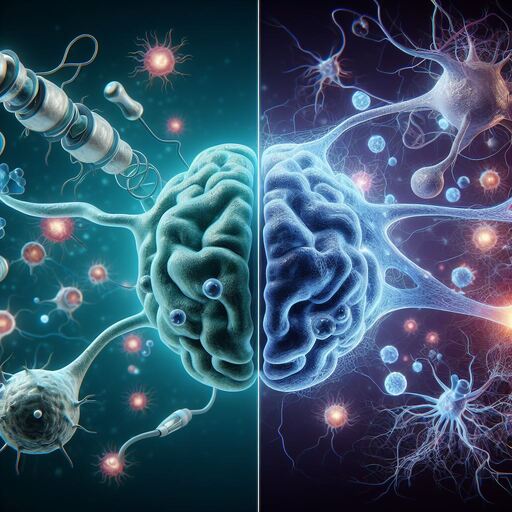Acetylcholine and Alzheimers Disease
Acetylcholine and Alzheimers Disease
Acetylcholine is a neurotransmitter that plays a crucial role in memory, learning, and communication between nerve cells. It is produced by the cholinergic neurons in the brain, especially in the hippocampus and the basal forebrain.
Recent research has shown that acetylcholine levels decrease in Alzheimer’s disease, which is a progressive neurological disorder characterized by memory loss, confusion, and difficulty performing daily tasks. The exact mechanism of how acetylcholine levels are reduced in Alzheimer’s disease is not fully understood, but it is thought to be due to a combination of factors, including neurodegeneration and impaired synthesis of choline.
One possible explanation for the role of acetylcholine in Alzheimer’s disease is that it helps to maintain healthy connections between neurons in the brain. In Alzheimer’s disease, these connections are disrupted due to the accumulation of amyloid-beta plaques and tau tangles, which can damage or kill cholinergic neurons. This can lead to a loss of acetylcholine release, which in turn affects memory and cognitive function.
There is evidence to suggest that increasing acetylcholine levels may help to improve cognitive function and slow the progression of Alzheimer’s disease. For example, studies have shown that cholinesterase inhibitors, which increase the levels of acetylcholine in the brain, can improve memory performance in patients with mild cognitive impairment.
Another potential therapeutic strategy for treating Alzheimer’s disease is to enhance the activity of nicotinic acetylcholine receptors, which are responsible for the majority of acetylcholine signaling in the brain. Nicotine has been shown to protect cholinergic neurons from degeneration and improve cognitive function in animal models of Alzheimer’s disease.
Acetylcholine and Alzheimer’s Disease
In conclusion, acetylcholine plays a critical role in memory and learning, and its levels are reduced in Alzheimer’s disease due to neurodegeneration and impaired synthesis. Increasing acetylcholine levels through cholinesterase inhibitors and enhancing nicotinic acetylcholine receptor activity may provide a promising therapeutic approach for treating Alzheimer’s disease.
Acetylcholine and Alzheimers Disease

